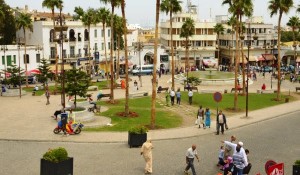Kansas city infozone
Staff infoZine
The second in a program of two operations designed to support the shift towards a low carbon economy.
Washington, DC – infoZine – The World Bank announced Thursday a new US$300 million loan to support the implementation of Morocco’s comprehensive green growth strategy. The second in a program of two operations designed to support the shift towards a low carbon economy, the Second Inclusive Green Growth Development Policy Loan (DPL) is focused on policies aimed at preserving the environment and protecting the livelihoods of the most vulnerable citizens, while developing new climate friendly job opportunities.
Sectors like fisheries, tourism and agriculture, which contribute around 25% percent of Gross Domestic Product and constitute a critical source of employment in poor rural communities, are significantly affected by the depletion of natural resources. The current DPL will support measures to improve the sustainability of these sectors and guarantee their long term prospects. In agriculture for instance, the program supports better groundwater management practices, soil conservation, and more effective meteorological information for farmers. Policies also support the preservation of fish stocks, to ensure the ongoing viability of the traditional fishing industry which supports over half a million Moroccans. In addition, the program aims to support parallel efforts to diversify sources of employment, through the promotion of industries that have less negative impact on the environment, such as eco-tourism and aquaculture.
The agglomeration of economic activity along Morocco’s coasts is having a significant environmental impact, exposing cities such as Casablanca, Rabat and Tangier to serious challenges threatening their long term growth. The DPL supports the development of an integrated coastal zone management framework that would enable sector agencies to better coordinate policies and investments and avoid conflicting use of coastal resources. The DPL also supports Morocco’s efforts to meet its energy challenges by developing the renewable energy market, energy efficiency regulation in the building sector, and removing fossil fuel subsidies. The latter will result in significant budgetary savings, making space for social programs such as health and education, while contributing to a substantial reduction of CO2 emissions up to roughly 14 million tons annually.
Related World Bank Link
Morocco. Photo courtesy of World Bank








